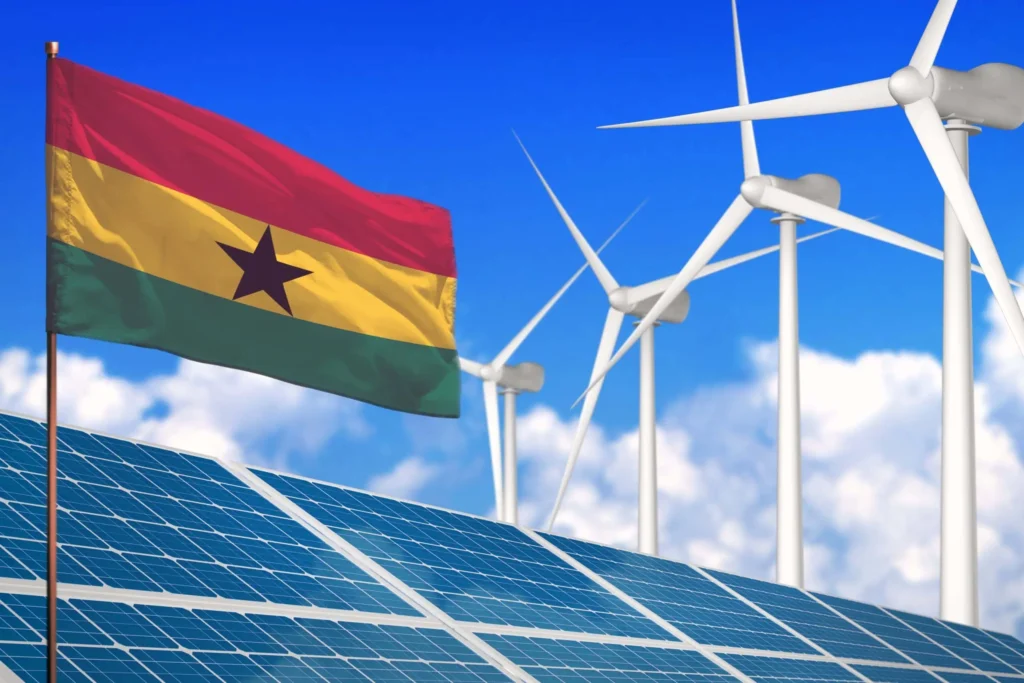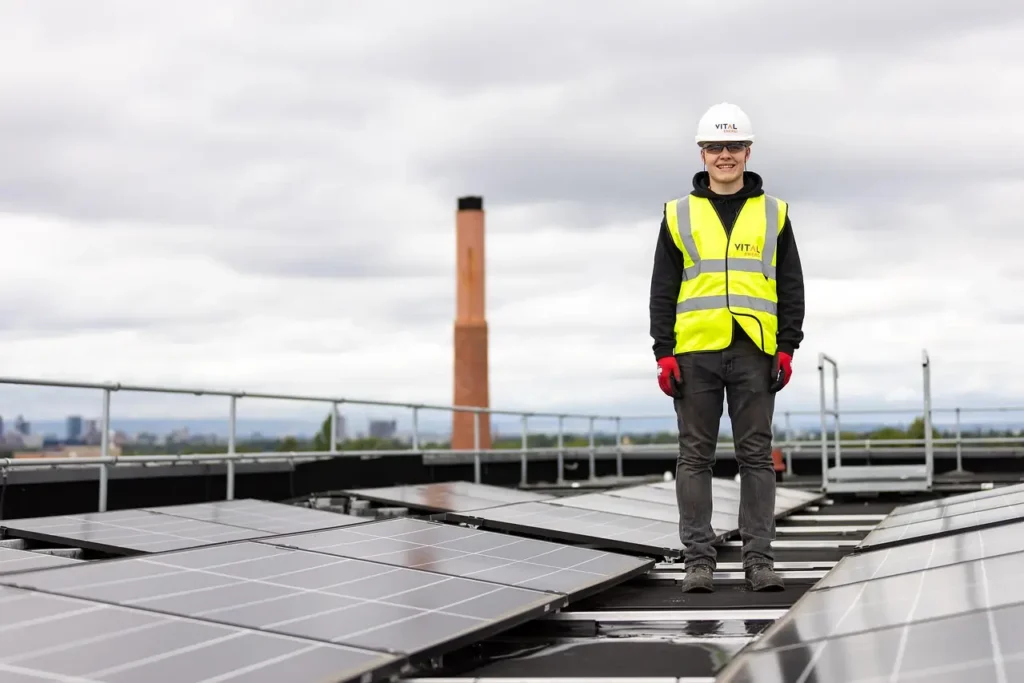Impact of Ghana’s Renewable Policy: Home Solar Revolution
Impact of Ghana’s Renewable Policy: Home Solar Revolution is driving widespread adoption of solar energy. Imagine reducing your electricity bills while contributing to a greener planet. Sounds appealing, right?
Ghana’s new renewable energy policy is making this dream a reality for homeowners like you. By focusing on solar energy, we pave the way for more sustainable and cost-effective solutions. But what does this mean for your home and your pocket?
Dive into the details of how this policy impacts home solar systems and discover the benefits you could reap. Your future might just be brighter—and more affordable—than you think. Read on to uncover the opportunities waiting for you.

Rise Of Renewable Energy In Ghana
Ghana’s new renewable energy policy boosts home solar system adoption. More families now access affordable solar power. This shift reduces electricity costs and promotes sustainable energy use.
The rise of renewable energy in Ghana is turning heads globally. The country’s commitment to sustainable energy solutions is paving the way for a cleaner future. With the introduction of its new renewable energy policy, Ghana is not only addressing its energy needs but also opening doors for innovations in home solar systems.
Incentives For Home Solar Systems
Homeowners can now benefit from incentives to install solar systems. The policy includes tax breaks and reduced import duties on solar equipment. These incentives make solar energy more accessible and affordable for many Ghanaians.
Impact On Local Economy
The policy is boosting the local economy by creating jobs in the renewable energy sector. Local businesses are seeing growth opportunities in solar panel manufacturing and installation. This, in turn, is stimulating economic development in various regions.
Challenges And Solutions
There are challenges, such as the initial cost of solar systems. However, financing options and government incentives can ease this burden. Are you ready to invest in a cleaner future with solar energy? The future of renewable energy in Ghana looks bright. The policy is setting a foundation for increased solar adoption.
As technology advances and costs decrease, more households will embrace solar power. Ghana’s new renewable energy policy is shaping a sustainable future. It’s an exciting time to consider how you can be part of this transformation. What steps are you taking to integrate renewable energy into your life?
Policy Framework
The policy framework is well-structured. It aims to streamline solar energy adoption. It provides clear guidelines for implementation. Homeowners find it easier to understand the process. The policy emphasizes sustainable practices. It highlights the importance of long-term energy solutions. This framework encourages innovation in solar technology.
These targets aim to increase solar usage significantly. By focusing on sustainability, the framework ensures lasting impacts. For families, this means reliable access to solar power. The policy framework supports a greener future for Ghana.
Financial Incentives
Financial incentives are a crucial part of the policy. They make solar installations more affordable. Homeowners benefit from reduced costs. These incentives lower the initial investment. Families can save money in the long run.
The policy includes subsidies for solar equipment. This makes solar panels more accessible to all. Lower costs encourage more households to go solar. With financial support, the transition becomes easier. Solar energy becomes a viable option for many families.
Advancements In Solar Technology
Ghana’s new renewable energy policy brings fresh hope for solar technology. Home solar systems are now more efficient and user-friendly. This policy supports the growth of solar energy in homes. It encourages innovations and cost-saving measures. These changes make solar power more accessible for Ghanaian households.

Innovations In Home Solar Systems
Recent innovations have improved solar panels significantly. They now capture more sunlight and produce more power. New materials make panels lighter and more durable. Smart solar systems allow better energy management. Homeowners can track energy use in real-time. This leads to greater efficiency and savings. Batteries have also advanced, storing more power for later use.
Cost Reduction Strategies
Cost is a major factor for homeowners. New strategies help reduce expenses. Bulk purchasing of materials lowers prices. Local production cuts shipping costs. Incentives and subsidies further decrease initial expenses. Maintenance costs are also dropping. Improved technology ensures longer-lasting systems. With these strategies, solar power becomes more affordable.
Economic Benefits
Ghana’s new renewable energy policy brings many economic benefits. Home solar systems are a key focus. These benefits extend to both individuals and communities. The policy supports cleaner energy solutions. It also encourages job creation and local industry growth. These aspects help boost the economy. Understanding these benefits can encourage more people to adopt solar energy.
Job Creation
The renewable energy policy opens doors for new jobs. More people are needed to install solar systems. Maintenance and servicing also require skilled workers. Training programs can prepare workers for these roles. This increases employment opportunities in local communities. Job creation brings financial stability to families. It also supports economic growth.
Local Industry Growth
Home solar systems spur local industry growth. Manufacturers can produce solar panels locally. This reduces import costs and boosts local businesses. Suppliers and retailers benefit from increased demand. Local production strengthens the economy. It supports small businesses and entrepreneurs. The policy encourages investment in local infrastructure. This creates a stronger economic foundation for the future.
Environmental Impact
Ghana’s new renewable energy policy is a bold step toward a sustainable future, and its environmental impact is significant. As the nation embraces renewable energy sources, home solar systems stand out as pivotal contributors. These systems not only help in reducing the carbon footprint but also play a critical role in resource conservation.
Reduction In Carbon Emissions
Home solar systems are game-changers in cutting carbon emissions. By generating electricity from the sun, they replace the need for fossil fuels. Imagine the difference when each household contributes to this clean energy shift—it’s substantial.
Every kilowatt of solar energy reduces the reliance on polluting energy sources. This means cleaner air and healthier communities. Have you considered how much cleaner the environment would be if more homes adopted solar energy?
Conservation Of Resources
Solar energy doesn’t just reduce emissions; it conserves valuable resources. Traditional electricity generation often requires significant water use. Solar panels, however, use no water to generate electricity, sparing this precious resource.
Think about how this impacts drought-prone areas. By using solar, you not only save on energy bills but also play a part in conserving water. What if your energy choices could contribute to a more sustainable planet?
Adopting home solar systems is not just a personal gain. It’s a collective leap toward a healthier planet. As you consider the impact of Ghana’s renewable energy policy, reflect on the role you can play. Your choice might just be the spark that lights the path to a greener future.
Challenges And Barriers
Ghana’s new renewable energy policy aims to increase solar adoption. Yet, several challenges and barriers can hinder this progress. Understanding these issues helps in crafting effective solutions. Let’s explore the hurdles facing home solar systems in Ghana.
Infrastructure Limitations
Ghana’s electricity grid struggles with inefficiencies. Poor grid connections limit solar energy distribution. Many rural areas lack access to stable power. This makes it hard to integrate solar systems. Without proper infrastructure, solar energy potential remains untapped. The need for investment in grid improvements is crucial.
Public Awareness
Many Ghanaians know little about solar energy benefits. Misconceptions about costs and maintenance persist. This lack of awareness affects decision-making. People fear high installation expenses. Education campaigns can change perceptions. Informing the public boosts confidence in solar solutions. Building trust is key to wider adoption.
Future Prospects
Ghana’s new renewable energy policy shines a light on home solar systems. The potential impact is significant. This policy aims to increase solar energy use in homes. It could change how families get electricity. The future of home solar systems in Ghana looks bright. Let’s explore the prospects.
Potential For Expansion
Ghana’s sunny climate supports solar energy. Many regions get abundant sunlight year-round. This makes solar systems an attractive option. More homes may install solar panels. This creates opportunities for local businesses. It can also lead to job creation in the solar industry. Such expansion could boost the economy. It also reduces reliance on traditional energy sources.
Long-term Sustainability
Sustainability is a key focus of Ghana’s policy. Solar energy provides clean power. It reduces carbon emissions. Homeowners save on energy bills. Solar systems have low maintenance costs. This makes them cost-effective over time. The policy encourages long-term investment in solar energy. It fosters a sustainable energy future for Ghana.
Ghana’s shift to solar energy is promising. It aligns with global sustainability goals. The policy supports a greener future. Home solar systems will play a vital role.
Frequently Asked Questions
How Does Ghana’s Policy Affect Solar Costs?
Ghana’s new renewable energy policy aims to reduce solar system costs. By offering incentives and subsidies, it makes home solar systems more affordable for residents. Lower installation and maintenance expenses are expected, encouraging widespread adoption of solar technology.
Are There Incentives For Home Solar Systems?
Yes, Ghana’s policy includes incentives for home solar systems. Tax breaks, grants, and subsidies are provided to reduce costs. These incentives aim to promote solar energy adoption, making it more accessible to homeowners across the country.
Will Solar Energy Reliability Improve In Ghana?
The new policy is likely to improve solar energy reliability. It encourages investment in infrastructure and technology, ensuring efficient solar energy systems. Enhanced reliability will support consistent energy supply, benefiting homeowners with stable and sustainable power.
What Are The Environmental Benefits Of The Policy?
Ghana’s renewable energy policy offers significant environmental benefits. It reduces reliance on fossil fuels, lowering carbon emissions. By promoting solar energy, the policy contributes to cleaner air and a healthier environment, supporting sustainable development.
What is the impact of Ghana’s renewable policy on solar energy adoption?
Ghana’s renewable energy policy has significantly encouraged the use of solar energy through incentives, subsidies, and investment-friendly frameworks, leading to increased adoption by households and businesses.
Conclusion
Ghana’s new energy policy boosts home solar systems significantly. Homes can reduce electricity bills. Solar power offers a sustainable energy option. Cleaner energy means less pollution. Families benefit from reliable power sources. Solar installation becomes more accessible. The policy supports local businesses in solar.
Increased demand creates job opportunities. Communities gain economic advantages. Ghana moves closer to energy independence. The future looks brighter with solar. Embracing renewable energy ensures a healthier planet. Residents should explore solar options soon. Solar investment is wise for long-term savings.
